“Ko tenda ñu rei ogueru che nderape iñe’e yvoty. Opuka ha amo’ a’y hágui ajuhu. Aipota peteī yvy porã. Aipota peteī yvy sã’y ha guasu. Peteī yvy roñemongeta hagua ha rokunu’u hagua heta ara ambue” (1)
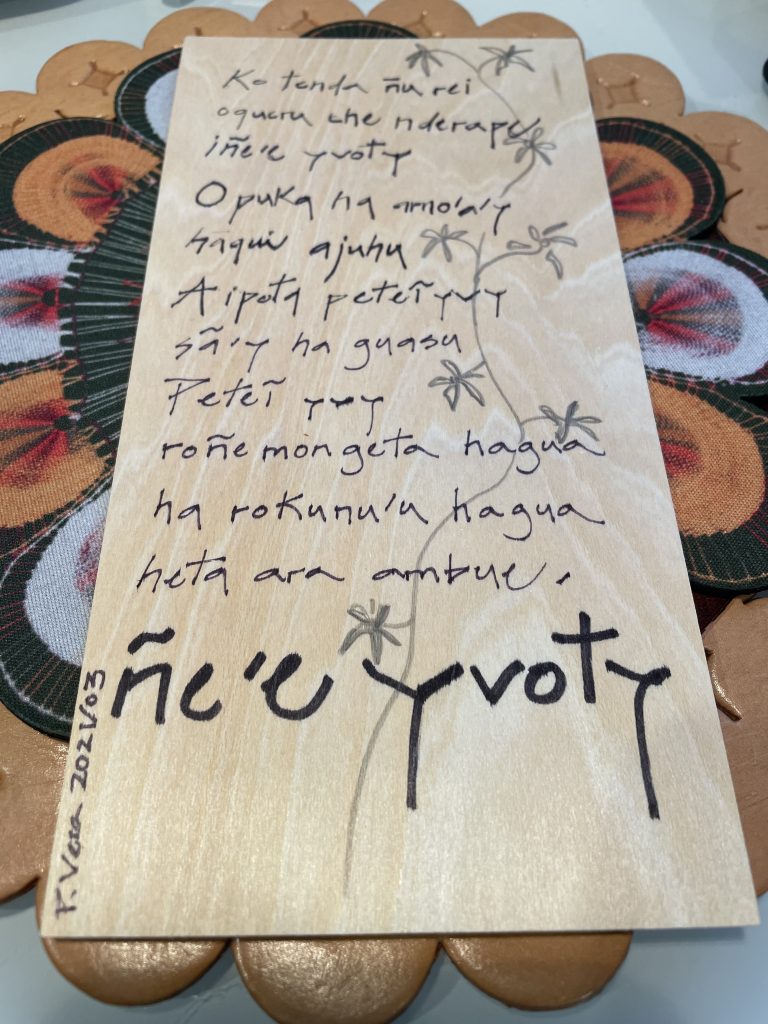
In Guarani cosmovision, we have two souls: the soul of the body: “ã” and the soul of the spirit: “ñe”, which means language, sound with sense. This souls is located in the throat of beings and it expresses itself through speaking, singing, praying, reflecting.
The “teko Porã”, el buen vivir or good living is the Guarani way of living, where the souls coexist and through an embodied experience with the land, living is a quest for the ” land without evil”: Yvy mara’ei.
As a preamble for the thesis research framing, I reflect back on language as a manifestation of my soul, as the place where I can go back to layers upon layers of memories, where identity brings upfront my different intersections.
These intersections that determine who I am are also my borderlands: those cultural borders that I redefine as intersectional margins, where the racialized view of capitalist and modernist societies define and delimit geographies and cultural identities, creating oppression, discrimination and marginalization. Recognizing my own identity and bringing in my own cosmology to the land where I am situated makes me embody my presence in this place. It also makes me define the design space within an embodied practice. I can’t separate myself from the land anymore, ergo I acknowledge it, I respect it, I embrace it.
I also take responsibility for the limits and biases of my own positionality, the “situatedness of knowledge, as a means of understanding that all knowledge comes from our positional perspectives”(Haraway 1988 -2005).
Recognizing my own identity and my positionality in the world, I can recognize the other in its own. I recognize myself, the land and my position in this pluriverse world.
The pluriverse is “the world of many worlds”, where different ways of being can build community and transform realities of exclusion, racism, discrimination, bigotry, ableism, social and ecological distress into possibilities of change. It is where we can let the land and our own epistemologies converse.
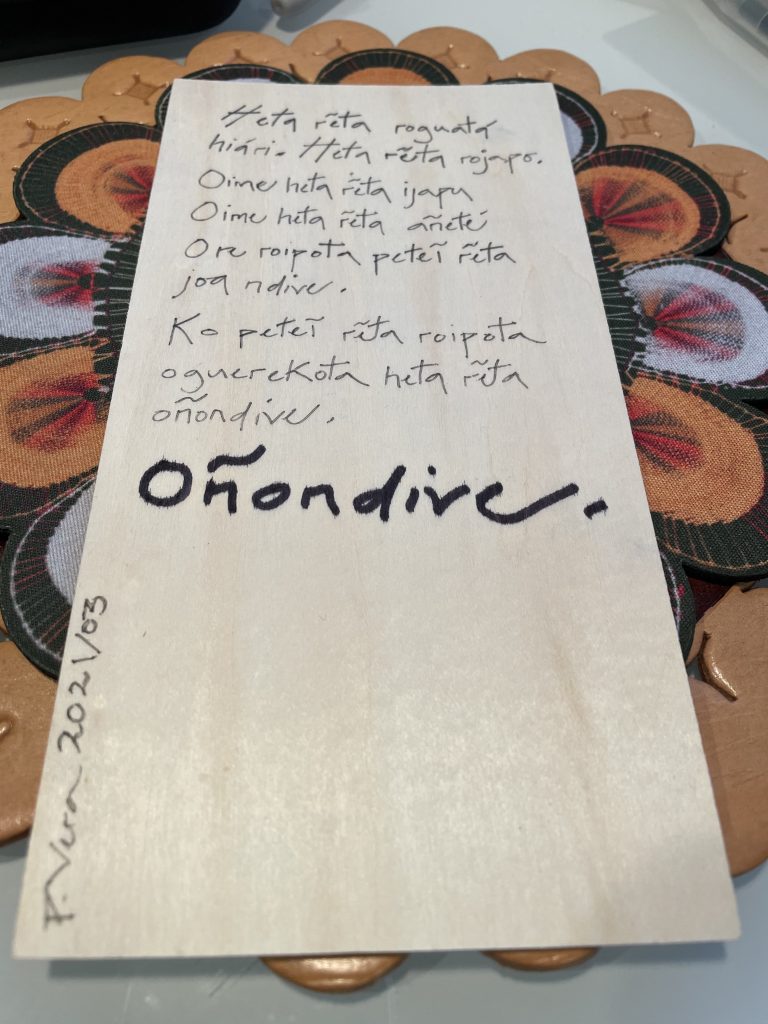
In this “Pluricosmos”, place is also more than human. It represents the cosmologies of every of its inhabitants. It goes beyond ourselves and our relationship. It transcends the materiality of our human needs. Listening to the land, we learn that our communities, our relationships go beyond our human existence. The other species, nature, its multiple creatures and non-creatures are equally part of the ecology of the world.
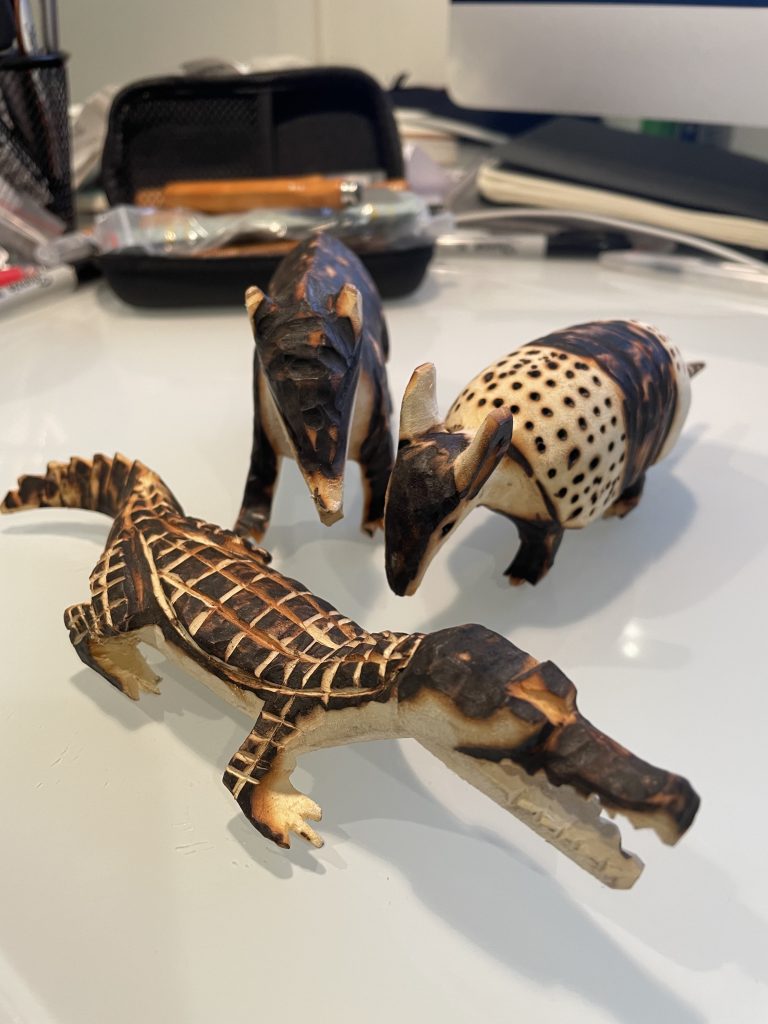
The soul transcends the human, inhabits the cosmos, it converses with it, it respects it, empathizes with it and the other beings.
As a sort of auto-ethnographic introspection, I reflect on my diaspora, that journey that brought me here to this land. I am introducing methods such as “untiming”: which let me analyze things from the present, the past or the future, depending on needs not structured chronological pre-conditions. This method helps me go back to the land of the Guarani grand-mothers of Paraguay who inherited me the Guarani language, at their blood’s cost.
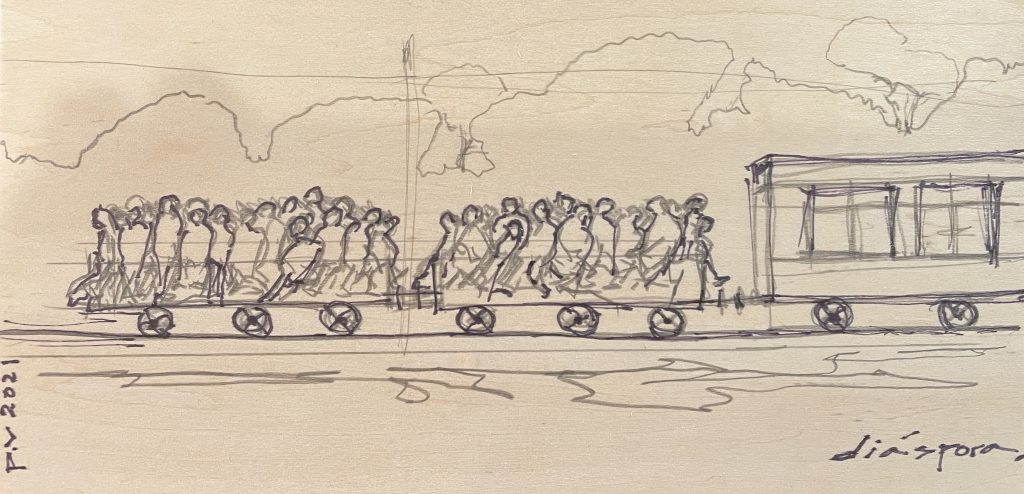
I brought my ñe, my soul, my language with me. It keeps me warm, it keeps me present, belonged. And as the journey continues, the research turns as a continuing exploration of borderlands, intersections, souls, languages that need to have that encounter in the pluriverse world.
I also introduce Worlding as a method of making with: sympoieisis (4). It allows me to situate myself with the others, in community, in company, to build within the multi pluri-cosmos.
I want to decolonize myself and the land by undesigning the colonized space in order to maybe build and let bloom those possibilities of change.
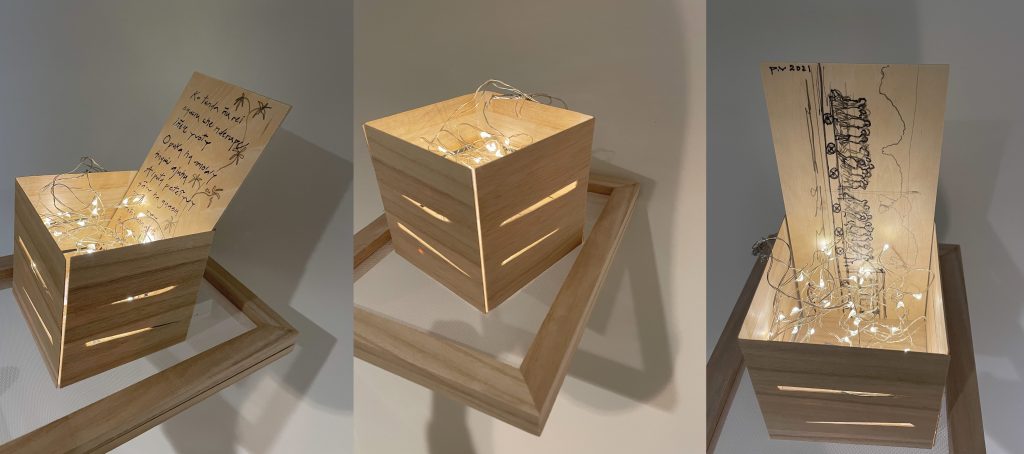
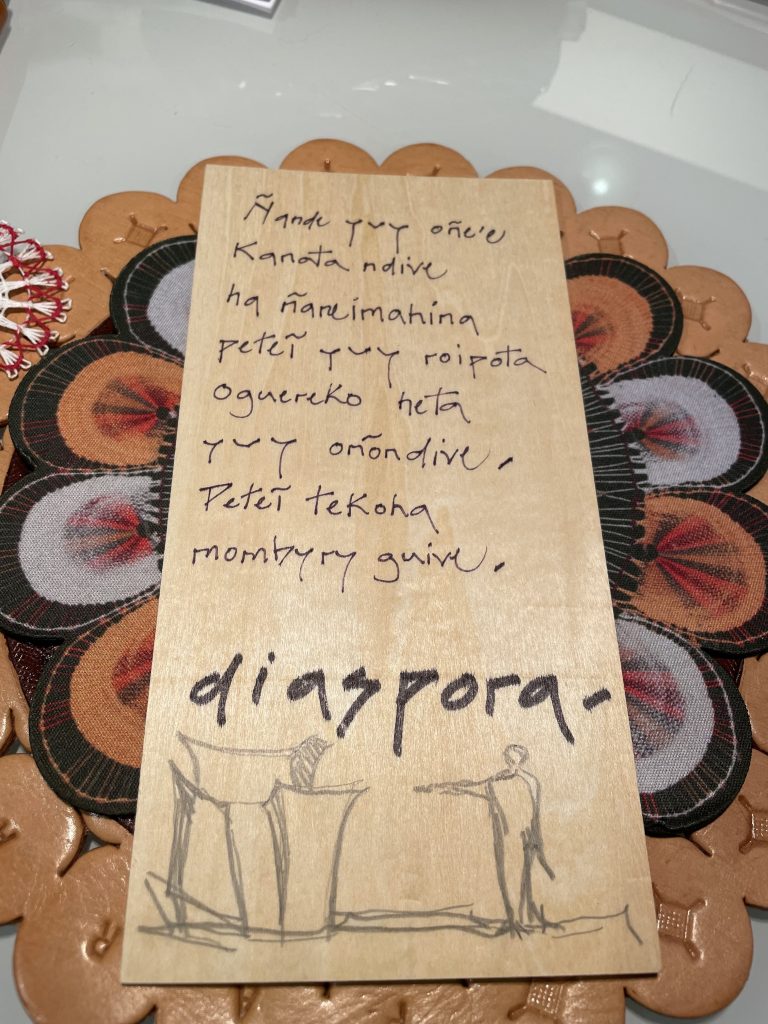
LEXICON-ing | Translations
1 – This remote land brings to me its soul in poetry, as a word that blooms in a sudden laugh, a word in a land that I want. A land that is free and vast, a land where we can talk and love for many days to come… (A poem in Guarani, 2021)
2 – Many worlds are walked in the world. Many worlds are made. Many worlds make us. There are words and worlds that are lies and injustices. There are words and worlds that are truthful and true. In the world of the powerful there is room only for the big and their helpers. In the world we want, everybody fits. The world we want is a world in which many worlds fit (Zapatista Manifesto of the Lacandon Jungle 1996)
3- Diaspora, between borderlands and Intersections – Our world converses with the other worlds to imagine the pluriverse.
4 – Sympoiesis is a word proper to complex, dynamic, responsive, situated, historical systems. It is a word for worlding-with, in company. Sympoiesis enfolds autopoiesis and generatively unfurls and extends it.” (Haraway 2016).
